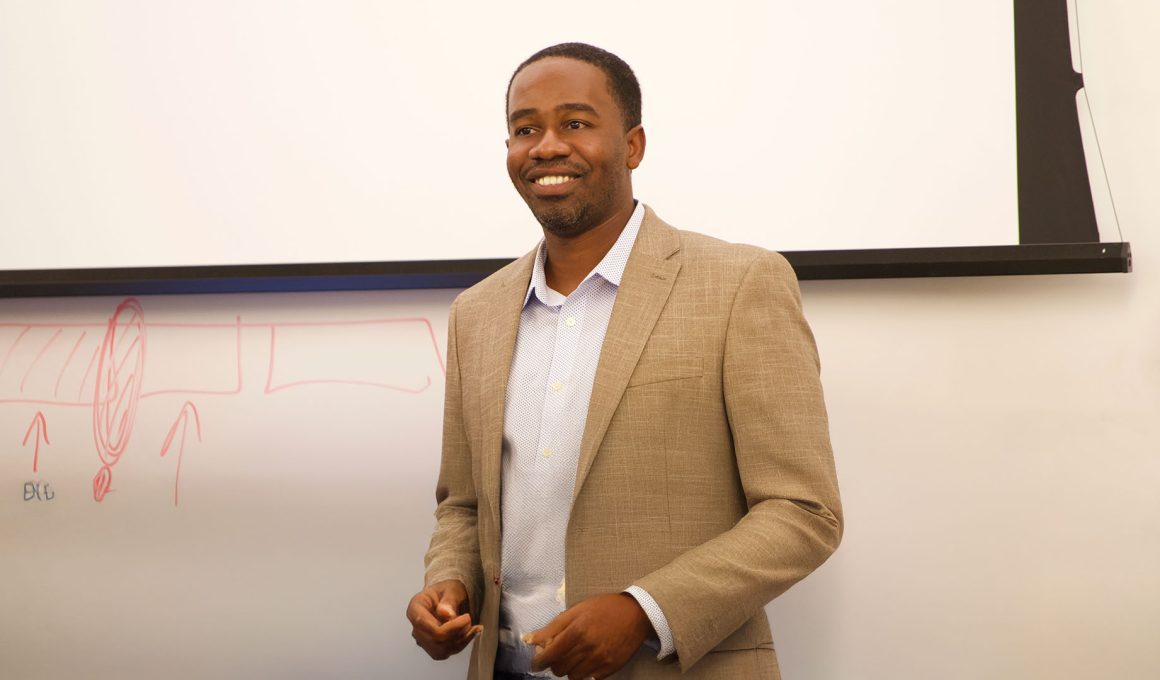Increasingly tight delivery timelines, rising customer expectations, and the growing demand for visibility across global supply chains have turned transportation and logistics into one of the most complex and competitive sectors in global commerce. With the global logistics market now exceeding 10 trillion dollars and last‑mile delivery representing more than half of total shipping cost, organizations face constant pressure to move faster, operate smarter, and deliver with precision.
This rapid evolution means even strong innovations can stall without the structures and culture needed to support them. “What I recognized early on is that transformation only sticks when people understand the why behind it. If leaders cannot connect strategy to real operational impact, the organization will never fully buy in,” says Matthew Darnell Caine, President of HOYER Global Inc., a company specializing in bulk liquid logistics.
Caine’s career has repeatedly shown that transformation gains momentum only when innovation is clearly tied to measurable business results. One defining example comes from an early board role supporting an early stage logistics company founded by a former Amazon leader who saw a major gap in last‑mile delivery. Despite strong technology, the company struggled to differentiate in a market where thin margins and perfect execution determine survival. Caine reframed the conversation around financial impact, illustrating how delays eroded profitability and how consistent, reliable delivery could unlock significant savings.
Known for scaling complex operations, guiding executive teams through consequential change, and helping boards turn high‑level strategy into practical outcomes, Caine approaches transformation with a blend of data‑driven clarity and a grounded understanding of how people respond to change.
Building Trust as the Foundation of Transformation
“The biggest differentiator in transformation is trust,” says Caine. “A board member has limited interaction with most of the organization, so you have to build a trustful relationship with your CEO or president first. They become the bridge for how change actually gets implemented.”
Leaders entering a new organization often find themselves navigating uncertainty among employees who fear disruption; people wonder what will change, who will leave, and whether their voices will matter. “Most of the time you find people just don’t feel like they’ve been heard,” he says. “If you listen and then make some of the small changes they’ve suggested, trust builds quickly.” His approach humanizes transformation, and sets the tone for the major initiatives that often follow from real listening, especially in companies preparing for digital upgrades or global expansion.
Culture, Leadership and Accountability
From these leadership experiences, Caine has identified three practices that consistently drive meaningful impact in any transformation:
- Build culture with intention. Caine often tells leaders, “If you don’t develop the culture, one will be developed for you, and it’s not always going to be the one you want.” He believes culture is shaped through consistent action, open communication, real forums for feedback, and transparency around expectations and goals.
- Assemble the right leadership team. When entering a new organization, Caine assesses existing management but also forms a close-knit group capable of driving transformation. “Some of those people already have strong reputations internally, so when changes start rolling out, it’s easier when the message comes from someone the team trusts,” he says.
- Create accountability through clarity. Caine emphasizes the importance of clearly defined roles, responsibilities, KPIs, and metrics. This level of clarity encourages people to either rise to the challenge or self-select out. “The ones who step up are the ones you want on the journey,” he explains. “And when someone leaves, it opens the door for new talent that pushes everyone else to become better.”
Technology’s Rise and the Board’s Enduring Role
A strong advocate for digital innovation, Caine also understands the limits of technology. He often describes AI as being in its “AOL moment,” a reference to the early internet era when potential was enormous but practical application was still emerging. While AI can surface insights, accelerate analysis, and remove friction from global operations, it cannot replicate the nuance of real leadership. “AI can give you ideas and suggestions, but it can’t replace real-time experience or the human way of connecting with people,” he says.
He points to moments throughout his career when a simple conversation solved what technology could not. Whether it was calming a worried team during a leadership transition or aligning global stakeholders around a strategic shift, human connection consistently proved more powerful than any tool. “No one enjoys being stuck in a phone tree pressing buttons,” he adds. “The moment a real person answers, everything changes. That human element is still essential in leadership.” As AI continues to reshape logistics and global operations, Caine sees an even greater need for boards that can balance innovation with humanity. Purpose-driven leaders will be the ones who ensure technology supports culture instead of replacing it.
Leading with Purpose in a Transforming Industry
Caine’s experience scaling organizations from 10 million USD to more than 500 million USD in revenue gives him a broad view of what drives sustainable growth. Whether advising boards, guiding CEOs, or leading international teams, his focus remains on using innovation to create meaningful impact, not disruption for its own sake.
“Transformation isn’t about having a silver bullet,” he says. “It’s about helping people understand the vision, building trust, and empowering great ideas that already exist inside the organization.”
For leaders looking to navigate global scale, digital disruption, or cultural change, connect with Matthew Darnell Caine on LinkedIn.








